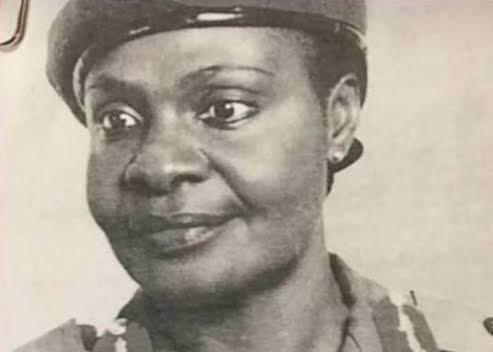The news of Aderonke Kale’s death dropped on Friday. One of Nigeria’s foremost examples of what women can achieve with unyielding determination left the world at the age of 84. Although the cause of her death remains unknown, it was said that she died in London on Wednesday.
Ronke’s story was that of a woman who rose to the summit of an uber-masculine and dangerous profession. She was also a woman of many firsts.
Ronke was the first female major-general in Nigeria, the first woman to head a military hospital in the country, and the first female commandant of the Nigerian Army Medical Corps (NAMC).
She was a source of inspiration for the unyielding power of women thriving and claiming their plagues of history in a male-controlled world.
Advertisement
Aderonke “Ronke” Kale was born on July 31, 1939 to the Oderinde family. She had an itinerant early education. Her secondary education began at St. Anne’s School, Ibadan, Oyo state, before completing her studies at Abeokuta Grammar School, Ogun state.
After her secondary education, Ronke was admitted to study medicine at the University College, Ibadan, which later became the University of Ibadan. Once she gained her MBBS certification, Ronke proceeded to the University of London to further her studies, and she specialised in psychiatry.
She worked briefly in the UK before returning to Nigeria in 1971.
Advertisement
She married Oladele Kale, a professor of preventive and social medicine.
FROM MEDICINE TO MILITARY
A year after Ronke returned to Nigeria, she decided to join the Nigerian army.
It was just a few years after the conclusion of the Nigerian Civil War, and Ronke’s training as a psychiatrist proved helpful for battalions of traumatised soldiers.
Advertisement
Before long, she became a consultant psychiatrist and later chief consultant.
Around this period, Ronke gave birth to Yemi, who became Nigeria’s statistician-general from 2011 to 2021.
FIRST FEMALE COMMANDANT OF THE NIGERIAN MEDICAL CORPS
Ronke’s career in the military continued with rapid ascent. She was named the commanding officer of the military hospital in Ibadan in 1980.
Advertisement
She held the position for five years and was the first woman to command a military hospital in Nigeria.
Ronke was then transferred to the military hospital, Enugu, and led the institution till 1987. The military hospital, Benin, was her next stop until 1990.
Advertisement
In 1994, Ronke shattered another glass ceiling and became the first woman appointed as the Nigerian Army Medical Corps (NAMC) commandant. No female had headed the military medical institution since it was established in 1956.
The institution did not get another female commandant for another decade before Abimbola Amusu was named in 2015. Ronke was present at Amusu’s handing-over ceremony.
Advertisement
FIRST FEMALE MAJOR-GENERAL IN NIGERIA
Ronke’s recognition in the military increased alongside her rise in the medical field.
Advertisement
She became a lieutenant colonel in 1978 and was promoted to colonel five years later.
In 1990, she rose to the position of a brigadier general. Four years later, Ronke wrote her name in history as the first female major-general in the Nigerian military.
Nigeria has had just one other female major-general after.
Ronke retired from the Nigerian army in 1997.
TRIBUTES
In 2021, Bolanle Awe, a professor of oral history, launched a book comprising an anthology of tributes for Ronke Kale.
Former President Olusegun Obasanjo was the chairman of the occasion, which was held at the Muson Centre in Lagos.
Obasanjo praised Ronke’s fortitude to stand the “test of time, competed, fought and remained resolute until she got to the top” in a male-dominated profession.
“Today, we are celebrating somebody who is worthy of being celebrated. I must say that our society, especially the institution called the Nigeria Army, is a male-dominated and chauvinistic environment,” Obasanjo said.
“But Gen. Kale did not get laid back because she is a woman. She stood the test of time, competed, fought and remained resolute until she got to the top. I think that, in itself, is a great commendation.”
After Ronke’s death was announced, President Bola Tinubu described her as a pace-setter and a role model who flourished in a profession where many failed.
“Major-General Aderonke Kale was a pioneer in her field. She embodied the courage, professionalism, capacity, and resilience of the Nigerian woman,” the president said.
“She thrived and conquered where many feared to tread. She was a towering figure; an inimitable role model.”
Add a comment






